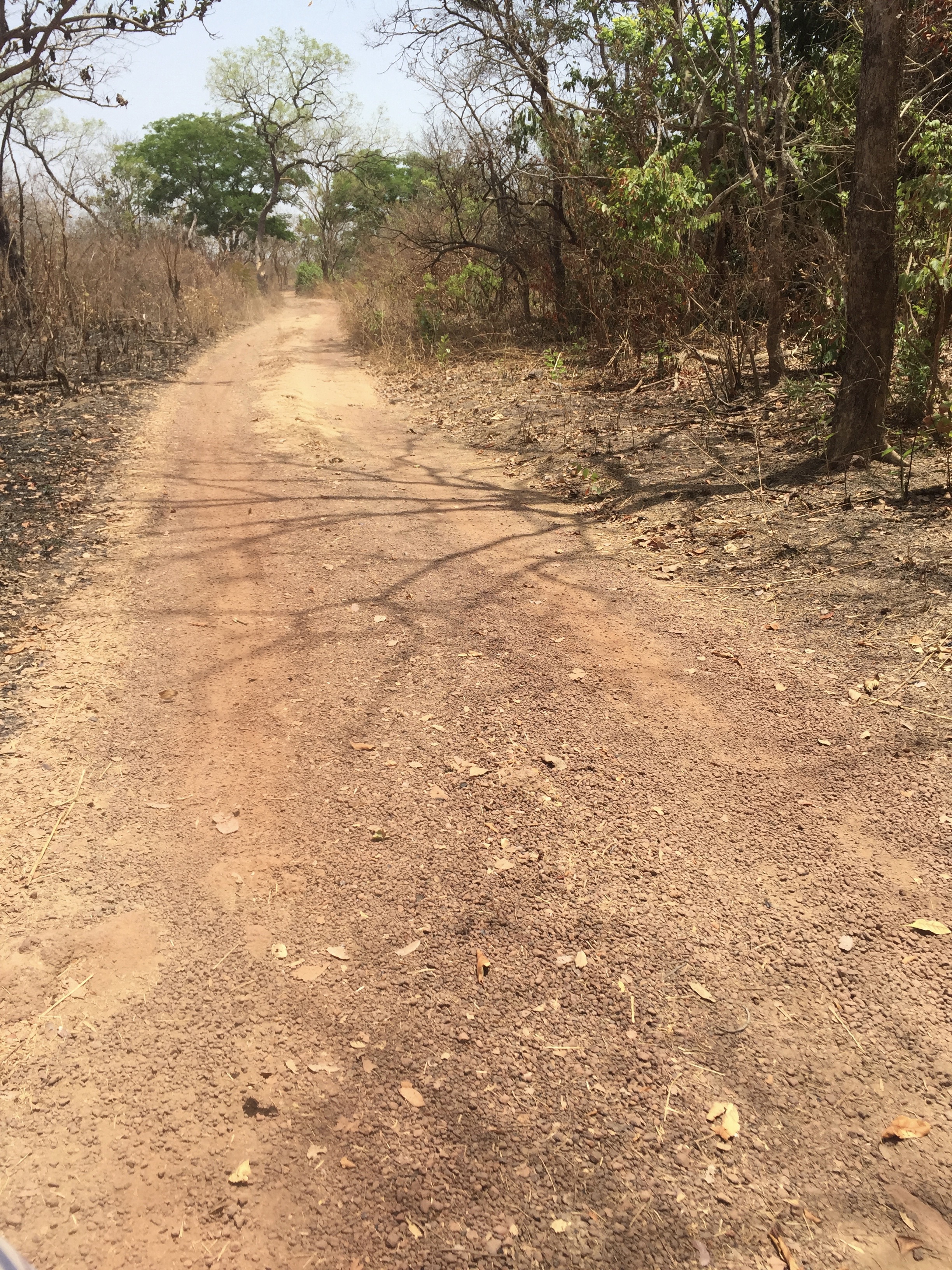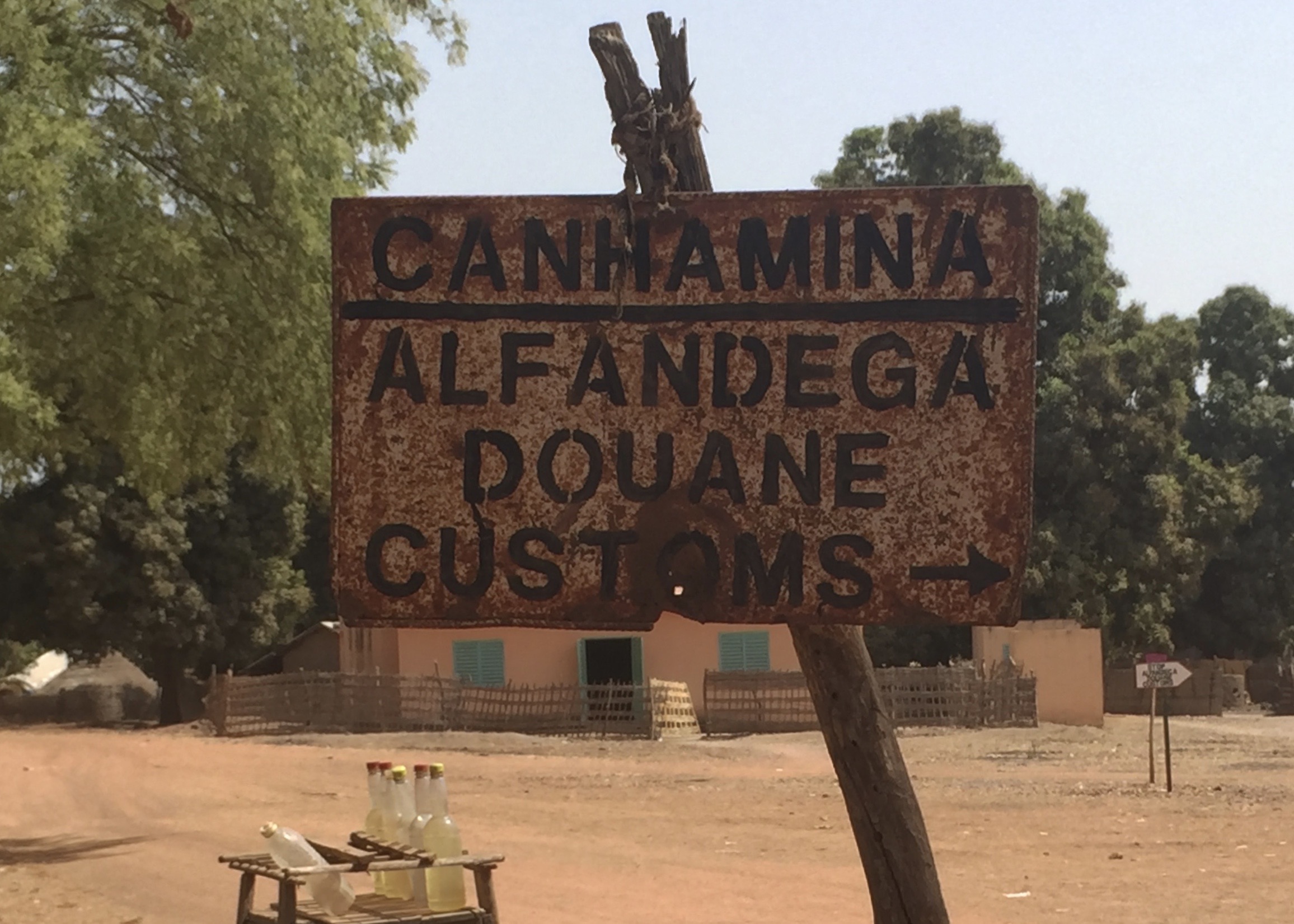Pathé Mballo
Pathé Mballo was born in Portuguese Guinea near the Senegal border. When he was 15 years old, the war for independence began. He briefly fled to Senegal but returned to the war and moved around between a variety of communities. Eventually, he moved to the capital city of Bissau and became a Portuguese soldier, for whom he fought for three years. Many of the independence fighters were based in Senegal, and Portuguese troops were not allowed to cross into Senegal to fight them.
Pathé joined the Portuguese military because it was one of the few ways to earn money he could use for his family. During the war, he learned Portuguese Creole (the lingua franca of Guinea-Bissau) to speak with his fellow Bissau-Guinean soldiers and Portuguese to speak with the Portuguese soldiers. With a month and a half left in the war (early 1974), he fled to Senegal where has lived ever since, living in the border town of Pakour.
Though he wanted to return to Guinea-Bissau later in his life, he could not because his family refused. They considered themselves Senegalese, and since most of his extended family had fled to Senegal during the war, they saw little reason to return. Unmarried people who came to Senegal married women from Senegal, thus giving them deeper roots in their new country.
Interview
It was white people who came here. They had trouble with black people and the PAIGC because they [Portuguese] wanted white people to lead the country. You know white people are clever; they had been doing politics until they knew everything. That’s why black people [the PAIGC] did not shoot them when they saw them [the Portuguese] escorting black people; they waited until black people were on their way back and they shot at them. After that, the white people will call Bissau telling them that people were attacked. So white people were very organized. One day an important Portuguese man we worked with, he put some tobacco in his pipe and smoked it and asked us if we knew what it was. We said no and he replied saying “You blacks! You are grown adults, and you see something new, and you don’t ask about it?” The Portuguese were so organized that when someone was killed, he still got paid. But we were paid until you died and that was it! We were paid 20 escudos per day and 700 per month, what did we have? They did not pay for our food either. We did it for long time until the end of the war. They got money from the bank in Bissau and some of us were given 30, 20 or 10. We were the donkeys who were doing all the work and if you died, you lost everything. You were killed, you lost everything. The Portuguese troops were paid 900; that was the normal rate, whether you were educated or uneducated. While we were the militia who were in charge of carrying their staff for them and it was tiring work. We did that until the war ended and people started running and coming here [Senegal]. The total length of the war is fifty-four years because we lived it for seven years and for forty-seven years we have been here [in Senegal], which will be a total number of fifty-four years. Since then, we have been living here in peace.
I got married while I was at Kopa; but we only lived together for one rainy season because I was a soldier and since they were civilians they ran and came here to survive from the war. If you are not paid well, you are risking your life every day, and your wife runs away [to Senegal] what are you doing here? That is how I came here to Casamance [southern Senegal] to join my wife. We moved here to Kopa for a month and half and the Portuguese returned back home [to Portugal]. A month and half later, they said that the war was ended in Guinea-Bissau; Then they [the PAIGC] took the country and named it Guinea-Bissau and and the name Portuguese Guinea died. I did not study this in school, but I still have the story in my mind.
When the war was over, you did not want to go back in Guinea-Bissau?
When the war ended, I wanted to return but those in my household would not accept me going back, because all of them were born here and all of them only know Senegalese knowledge. Now if I was in Guinea-Bissau how would I have anything? I don’t know.
Do you still have relatives there?
In Guinea-Bissau, we have there many Fulbe people, but our relatives are all here; our “relatives” there are because we all got married the same year during our fathers’ time. So they are not exactly relatives, but we all Pulaar-speakers and all “related.”

